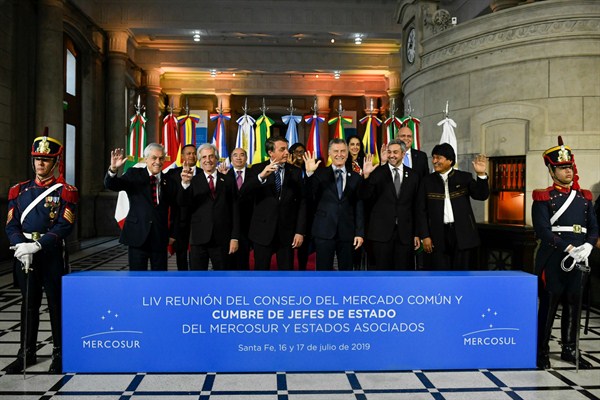The rise of populism, President Donald Trump’s “Make America Great Again” mercantilism, the worsening U.S.-China trade war and fears of a global recession all point to a new protectionist era. Yet new trade deals are still being signed, perhaps most prominently in Latin America, where at least some politicians remain enthusiastic about free trade. The region reflects the current push and pull over the terms of globalization, and how the ideas that initially drove it are being upended.
There are currently over 300 free trade agreements in force around the world. They come in different shapes and sizes, but the common thread is reduced tariffs. Around 35 free trade agreements—one tenth in all—have been signed by Latin American and Caribbean countries. Supporters of free trade argue that by cutting both tariff and non-tariff barriers, the deals allow countries to export more of the goods and services that they produce most efficiently and to import those for which other countries have a comparative advantage, therefore benefiting from competitive prices. The net result, in theory at least, is a win-win, with higher efficiency and mutual benefit all around.
Yet populist opponents of free trade, and of globalization writ large, argue that the system is rigged in all sorts of ways by powerful or opportunist countries. This includes the manipulation of exchange rates and the use of hidden state subsidies. Like Trump, they see most trade negotiations not as a win-win, but a win-lose transaction. They want their countries to be on the “winning” side by ending up with a large trade surplus.

